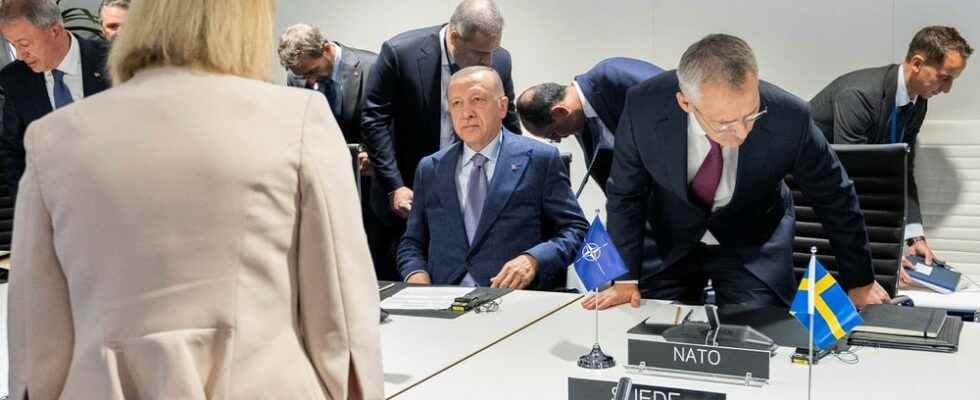Ahead of the NATO summit in Madrid, the trio of Sweden, Finland and Turkey, led by NATO, have in recent days been working on a statement that would pave the way for the processing of the two countries’ applications.
A key issue for Turkey is its view of the country’s security and the threat of terrorism. Turkey has demanded the deportation of people in Sweden who the Turks consider to belong to the PKK and other organizations. From the Swedish side, Turkish demands regarding Kurdish YPG and other movements are rejected. On the other hand, Sweden’s attitude towards the PKK is harsh:
– Our attitude to the PKK is crystal clear. It is listed as a terrorist organization within the EU and is also seen as such by Sweden, Prime Minister Magdalena Andersson (S) stated when she visited the NATO Headquarters in Brussels on Monday before her departure for Madrid.
In his prepared speech, which was given in English, the Prime Minister said that Sweden is “unequivocally committed to fighting terrorism in all its forms and expressions” and addressed the Turkish demands:
– One of the issues raised by Turkey concerns Sweden’s response to Turkey’s request for deportation. These issues are dealt with promptly and carefully by our legal system in accordance with the European Convention on Expulsion, said Magdalena Andersson. She also said:
– Sweden is not, and will not be, a refuge for terrorism. Relevant authorities work intensively to deport people who may pose a security threat. And there are a significant number of cases currently being processed, the prime minister said.
Specifically, the Security Police, Säpo, a list of people in Sweden affiliated with the PKK. These are “at least a dozen people”, according to what DN experiences from sources with transparency.
In the case of the PKK, deportations have been mentioned in the talks with Turkey, which is confirmed by people with transparency in the talks. “However, nothing is ready until everything is ready,” says a DN source.
Two expulsions have taken place this year, according to a government source, and more may come. The government does not want to answer DN’s questions about the list of at least 10 people, but it refers to the Security Police.
– What we can say is that we have a mission to prevent people who are, or may become, a security threat from staying or establishing themselves in the country. This is done based on the rules and laws that exist, says Karin Lutz, press officer at the Security Police.
But the Security Police do not want to confirm the number of individuals on the list for DN:
– We have no opportunity to confirm and say that we have a certain number of people. We do not go into it with regard to privacy, personal safety and integrity, Karin Lutz answers DN’s question.
Terrorist researcher Magnus Ranstorp at the Swedish National Defense College tells DN:
– I can not imagine that you will deport someone with Swedish citizenship. But if you are not a Swedish citizen, you do not have the same protection if you pose a threat to national security, says Magnus Ranstorp.
The law that can primarily be applied is the law on special aliens control. Säpo is the authority that has knowledge of terrorism, while decisions on deportation are made by the Swedish Migration Board. The decision can be appealed to the Migration Court and the Migration Court of Appeal. Ultimately, the government decides whether the deportation is to be carried out.
In any case, it is clear that Sweden will act tougher against terrorism. Several tightening of the law is underway. At present, terrorist acts are criminal, not belonging to a terrorist organization, but such a law will enter into force next year.
Late Tuesday afternoon Magdalena Andersson, Finnish President Sauli Niinistö and Turkish President Recep Tayyip Erdogan met in person. The Trio’s meeting was chaired by NATO Secretary General Jens Stoltenberg.
The obstacle to Swedish and Finnish NATO membership seems to be the view of terrorism. NATO’s other 29 countries, as well as Sweden and Finland, refuse to agree to Turkey’s efforts to stamp out the Kurdish YPG. In the fight against IS, the YPG was the first line of defense and therefore the rest of NATO is against the Turkish demands.
The hope from Sweden and Finland is that Turkey will give way after the extra discussion on terrorism that Turkey got through on the last day of the summit, Thursday.
– Should this not be the case, talks with Turkey will continue after the summit, says a Swedish government source.
